February 13, 2008 12:00am
FEDERAL Parliament will apologise for the "profound grief, suffering and loss" inflicted on the stolen generations and will vow to never let it happen again.
Prime Minister Kevin Rudd yesterday tabled in Parliament the text of the national apology, which he will formally deliver today.
The 344-word apology, based on extensive consultation with indigenous groups, honours Australia's Aborigines, "the oldest continuing cultures in human history", and uses the word sorry three times.
"We reflect on their past mistreatment," the apology says.
"We reflect in particular on the mistreatment of those who were stolen generations, this blemished chapter in our nation's history."
Aboriginal groups have welcomed the content of the long-awaited apology, with Reconciliation Australia describing it as extremely moving.
The former Howard government, which lost last year's election, refused to issue a formal apology claiming it would leave the Commonwealth liable to a flood of compensation claims.
Hundreds of indigenous Australians have descended on Canberra to witness the historic apology, which comes more than a decade after the Bringing Them Home report.
That report documented the stories of some of the tens of thousands of Aboriginal children taken from their families by governments between 1910 and the early 1970s.
The Parliament will apologise for "the laws and policies of successive parliaments and governments that have inflicted profound grief, suffering and loss on these our fellow Australians".
The Opposition, which was given the text about two hours before Mr Rudd tabled it, will support the apology, which says a new page in Australia's history can now be written.
Reconciliation Australia co-chair Mark Leibler said the text was "beautifully crafted" and extremely moving.
Australians for Native Title and Reconciliation national director Gary Highland said the apology had a sincerity and a genuineness which the public will respond to warmly.
"I really hope that all Australians will take the time to listen to what's being said tomorrow, and reflect on all elements of Australian history, good and bad," he said.
Aboriginal and Torres Strait Islander Social Justice Commissioner Tom Calma said the apology would directly benefit members of the stolen generations by validating their experiences.
"It is not about black armbands and guilt," he said.
"It is about inclusion and learning from the past.
"And, ultimately, it is about providing space in the telling of our national story for the stolen generations."

Much more than a simple gesture
Fiona Stanley February 05, 2008
SOME people think that saying sorry is merely a gesture. The evidence shows it is in fact much more than that. I believe that forced removal from family or land is one of the most important factors leading to the modern indigenous circumstance.
Our institute's researchers interviewed more than 2100 carers of 5300 Aboriginal children across the whole state in the early 2000s. More than 40 per cent of Aboriginal children in Western Australia are living in households today where at least one carer had been affected by forced separation from their natural family or forced relocation from traditional country or homeland. These are substantial proportions for any population and while we hear of individual stories of some people surviving these traumas with apparently little harm, and some having successful educational experiences, the impact, as assessed in our research, has on the whole been grim and has moved across generations.
Carers who had been forcibly separated from their natural families were more likely to have been arrested or charged with an offence, abused alcohol or gambled to the point where it caused problems in the household, and to have used mental health services. Just as damning, children whose parents had been forcibly separated from their natural family by a mission, government or welfare agency were over twice as likely to have clinically significant emotional or behavioural difficulties.
Our scientific findings establish with firm evidence the veracity of the experience that Aboriginal people so eloquently told us in their individual stories from the Bringing Them Home Report of the National Inquiry into the Separation of Aboriginal and Torres Strait Islander Children from Their Families.
Both of these kinds of data provide direct evidence of the impact of forced removal on the present poor health and mental health status of many Aboriginal people. Many reports suggest that the forcible removal of children from family and land was a human rights breach of enormous proportions and recommends strongly that restorative justice and healing be implemented.
The lack of implementation of these recommendations should be a source of anger and indignation. That they were not acted upon perpetuates a cycle of damage and dissipates focus and energy needed for the future.
More globally, the Canadians have apologised for the Residential School program: a similar attempt to take away culture, language and family from their indigenous populations. As part of the reparation, 10 years ago they also established an Aboriginal Healing Foundation to fund a range of projects which enabled healing, cultural strengthening and other activities to acknowledge the value of the First Nations people of Canada. The results in terms of falling suicide rates and other improved outcomes have just been published.
If people realise that there are reasons for their problems that can be addressed, then they have hope enough to live and make a go of their lives. If no one appears to understand that these traumas were real and powerful influences on health and wellbeing, then why not just drown your sorrows in alcohol and try to forget?
I strongly suggest that we establish a Healing Foundation immediately and monitor its effects.
The Bringing them Home Report of 1997 was strong about an apology for this aspect of our history. The report realised the power and importance of indigenous healing, along with preventive and primary mental health and wellbeing services. Such services also include parenting and family wellbeing programs, acknowledging that not having had parents at crucial stages of child and youth development meant that many Aboriginal parents were not competent or confident when they became parents themselves. Prisoner services to treat and rehabilitate those with mental illness and substance abuse were also recommended.
Perhaps the hope in avoiding an apology is the hope that saying "get over it" would be a practical solution for restorative justice, at home and in the eyes of world. However, the real harm and ongoing consequences of past policies and practices that we have documented call for reparation. Saying sorry is the starting point in creating a restorative vision for all Australians. We need to get on with saying sorry now.
Fiona Stanley is chairwoman of the Australian Research Alliance for Children, a director at the Telethon Institute for Child Health Research and a professor of the school of pediatrics and child health at the University of Western Australia.
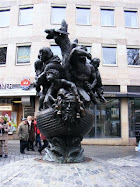
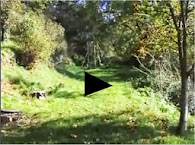
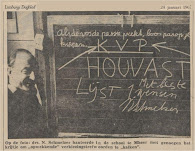

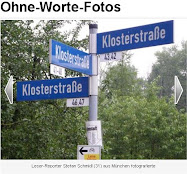
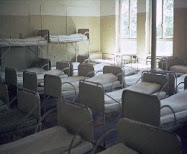





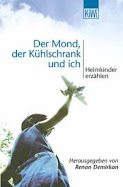

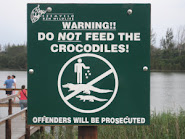

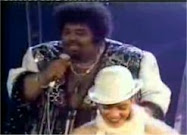
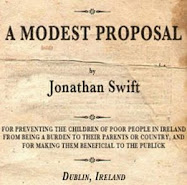


Geen opmerkingen:
Een reactie posten